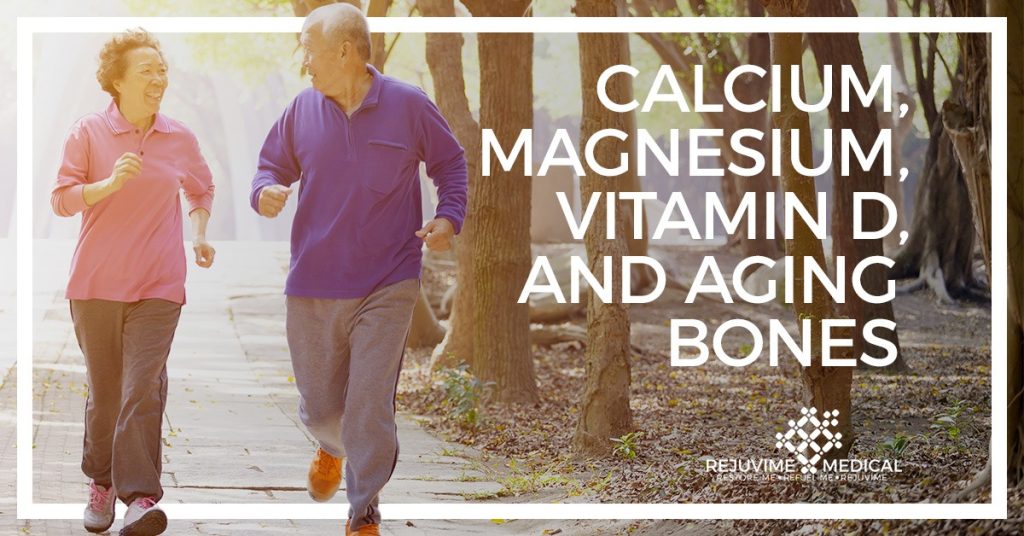If you are a woman who is past menopause, you should be watchful to protect your bone health. The fact is, when your natural estrogen levels drop at menopause, osteoporosis tends to accelerate. One of the techniques that we would recommend to women in the local area is to visit us for estrogen therapy and other bioidentical hormone therapy in Baton Rouge. However, boosting your body’s estrogen isn’t the only strategy you can employ to give your body its best chance at healthy bones. In this article, we’d like to explore the relationship between calcium, magnesium, and vitamin D on your bones.
Calcium
About 99% of your body’s calcium is stored in your bones and teeth. The other 1% of your calcium is floating around in the liquids (plasma) in your bloodstream. Interestingly, blood calcium levels are regulated so tightly in the body that if the calcium drops or rises, your body responds in minutes to restore the balance to equilibrium. In fact, the body has such a hyper-focused vigilance to maintain calcium at the right proportion in the blood that researchers have compared it to the way the body regulates blood sugar.
If you have a calcium deficiency, the body will strip calcium from your bones to maintain the blood calcium levels that it needs. If you then consume calcium, the body can restore calcium to your bones, but if you have a long-term deficiency, more and more calcium will be robbed from your bones, making them porous. This puts you at greater risk of breaking a bone if you fall.
However, most people in the US are aware of the risks of calcium deficiency, and almost everyone makes it a point to consume dairy, dark leafy greens, and other calcium-rich foods.
What many people don’t know is that boosting calcium intake is not necessarily enough to ensure that you’ll succeed in giving your body what it needs to build healthy bones.
Vitamin D
Vitamin D is required for calcium absorption. If you are deficient in vitamin D, you can take all the calcium you want, but it won’t necessarily be getting through to the systems that need it. Vitamin D deficiency is extremely common, but not everyone makes the connection between vitamin D and calcium. Even here, though, merely boosting the amount of vitamin D supplements may not be enough to get the results you want.
Magnesium
Magnesium is an incredibly important element in its own right, but it has some very specific interactions with calcium and vitamin D that make it relevant to look at here. Magnesium is needed to convert vitamin D into its active form. In other words, vitamin D can’t give a hand to calcium unless magnesium first gives a hand to vitamin D. Many people in the US are magnesium deficient due to levels of magnesium in the soil being depleted over the last 100 years or so. Researchers have noticed that people who are taking vitamin D supplements tend to still show a vitamin D deficiency until they add magnesium to the mix. Only then does vitamin D actually go up.
Magnesium also plays a vital role in balancing the effects of calcium in multiple body systems. For instance, excess calcium can increase your risk of calcified arteries and kidney stones, but having the right balance of magnesium can counteract those effects. Also, magnesium helps to make your bones less brittle and more flexible.
Get your magnesium and calcium boost at Rejuvime Medical
When you get our IV nutrient therapy at Rejuvime, you’ll have the chance to try our Myers’ “Wellness” Cocktail of magnesium, calcium, various B vitamins, and vitamin C. Boost your well-being, vitality, and energy level when you work with Rejuvime. We are here to provide age-defying treatment for the inside and the outside so that you can look as good as you feel, and feel as good as you look.


Leave a Reply